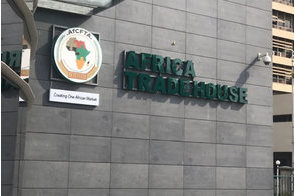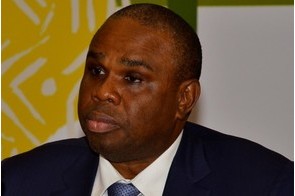Latest News
African countries need to renegotiate their investment treaties – expert

News Highlight
By commencing the process of renegotiating their investment treaties forthwith, Isaac Ibikunle said African countries can reflect some innovative provisions such as those found in the AfCFTA Protocol on Investment.
Nigeria and other African countries need to renegotiate many of their investment treaties to avoid or limit liabilities from disputes with international investors. This advice was given by a Harvard Law School-trained expert on international arbitration and litigation, Isaac Ibikunle.
Ibikunle gave the expert advice while speaking on the topic “Latest Developments & Trends in Energy Disputes” at the 13th Annual Conference of the African Society of International Law, which held in Lagos on 1-2 November 2024.
Addressing the challenge of liability in renewable energy investment disputes, Ibikunle noted that investment disputes are inevitable in the emerging renewable market in Africa. According to him, African countries need to focus their efforts on measures that will help avoid or limit liability when investment disputes arise in the nascent energy sector.
“African countries can limit their liability and avoid the same fate which Spain currently faces at various international arbitrations,” said Ibikunle. He said the European Union member state is locked in decades-long battle with foreign investors over the changes to its renewable energy policy and the country is seeking to overturn arbitral awards against it.
By commencing the process of renegotiating their investment treaties forthwith, Ibikunle said African countries can reflect some innovative provisions such as those found in the African Continental Free Trade Area (AfCFTA) Protocol on Investment. According to the expert, the provisions include those expressly preserving the regulatory powers of African states to modify their domestic laws, review their policies, terminate licenses, and provisions imposing renewable energy-related obligations on investors which will ensure that African states can initiate actions or counterclaims when disputes arise.
Ibikunle also noted that African countries may seek the General Agreement on Tariffs and Trade (GATT)-style protection for their low-carbon minerals by declaring through their laws and investment treaties that these minerals are essential for their security interests and that the states’ decisions around them are self-judging and no tribunal can review such decisions.
He observed that considering the various security risks that are so far associated with the mining and processing of these low-carbon minerals on the continent, it is hardly debatable that the minerals are critical to essential security interests of African states. He stated that this protection has been successfully explored by Colombia, although in a non-renewable energy sector, such that the tribunal dismissed the entire claim against the South American state.
“If renegotiation is resisted, African states should be prepared to withdraw from the treaties in line with the various sunset clauses,” Ibikunle advised.
The conference brought together other global experts including Makane Moise Mbengue, Professor of International Law at University of Geneva, Switzerland and University of Sciences Po Paris, France; Prof. Damilola Olawuyi SAN, UNESCO Chair on Environmental Law and Sustainable Development at HBKU Law School, Doha, Qatar; Elena Cima, Senior Lecturer, University of Geneva and Chair of the ESIL IG on Energy and International Law; Funke Adekoya SAN, Independent Arbitrator; and Tafadzwa Pasipanodya, Partner, Foley Hoag LLP, USA.
Related News
Latest Blogs
- How Tinubu is ensuring equitable access to public services
- Nigeria’s economic reform faces new threats
- What Ould Tah’s tenure at BADEA reveals about his AfDB candidacy
- Implementation strategy crucial for the success of 12-4 education policy
- A senator’s suspension threatens the right of representation
Most Popular News
- Artificial intelligence can help to reduce youth unemployment in Africa – ...
- Nigeria records $6.83 billion balance of payments surplus in 2024
- Tinubu appoints new Board Chair, Group CEO for NNPC Limited
- Tariffs stir inflation fears in US but offer targeted industry gains ...
- CBN net reserve hits $23.1 billion, the highest in three years
- Soaring civil unrest worries companies and insurers, says Allianz









